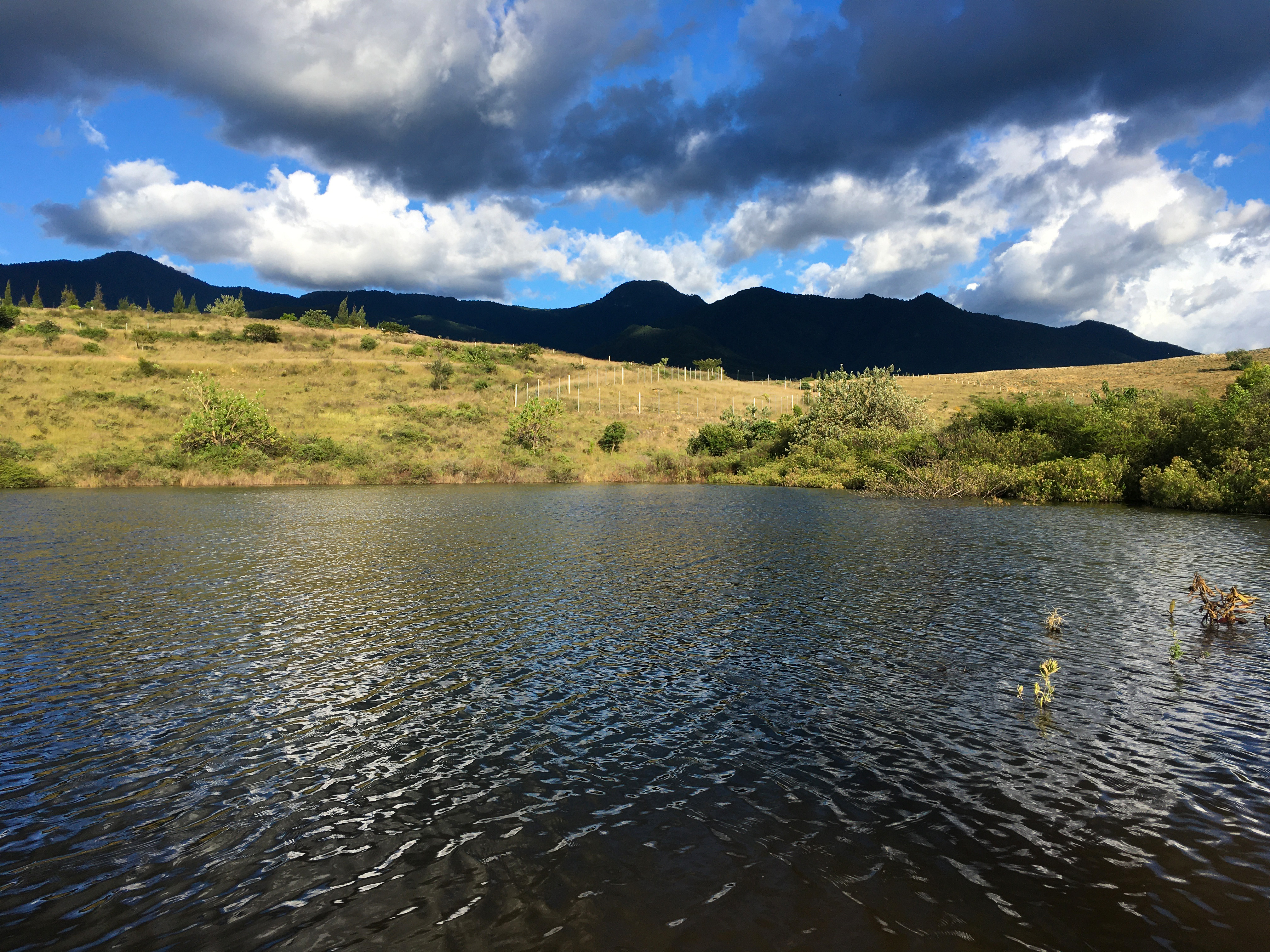No global climate justice without global epistemic justice
by: Nicolás Pradilla
Climate Crisis, Climate Justice
by: Nicolás Pradilla
Climate Crisis, Climate JusticeImage: Water harvesting pot in San Sebastián de las Flores, Oaxaca. Retaining as much rainwater as possible brings many environmental, health and economic benefits. It contributes to the infiltration of water into groundwater and the regeneration of soils. Photograph by Nicolás Pradilla.
Climate change is forcing economic transitions among the poorest sectors and will accelerate the shift from self-consumption agriculture to other forms of underpaid labor in urban centers. This has serious implications for increased food and ecosystem vulnerability.1 In the urgency of a broader debate around climate justice, over the coming months, More of Us will address the relationships woven by a variety of initiatives in the territory towards self-management and food sovereignty. Stories that move away from the paradigm of development, permanent growth and its agro-industrial machinery, while weaving interspecific approaches to the reproduction of life from situated knowledge in the Global South.
We believe that in order to guarantee climate justice it is essential to also guarantee epistemic justice.2 There will be no equity in the distribution of goods, services and costs of economic activity within the biosphere among peoples and generations without an equitable valuation of the ways of seeing and reproducing the world, nor without access to situated knowledge in the life web.
The Eurocentric universalist view of the world has historically displaced indigenous and situated models that build relations for the reproduction of life based on context. It has done so through the imposition of technological packages and narratives centered on consumption that have provoked geological transformations on the planet. The coloniality of the logic of accumulation structurally reproduces inequitable relations in the distribution of losses and gains. This view, which is based on destruction for the production of wealth, has shown the need to seek other routes.
In the public debate during recent years, the way in which we respond to the ecosocial crisis and mitigate the ecosystemic damages produced by the overconsumption of fossil fuels and other highly polluting agents, deforestation, loss of biodiversity, water pollution, modification of nitrogen and phosphorus cycles, among other indicators of planetary boundaries, has become a priority.3 The prospects in the Global North are torn between degrowth and a Green New Deal that continues to fantasize about sustainable development while peripheralizing the damages of their energy transition. Sustainability cannot be understood separated from equitable distribution. This is proposed both through equity in the fair distribution of goods, services and environmental costs among different territories and social groups, as well as several generations. These are the two main axes of climate justice.4
In the face of the energy decline and the climate crisis, it is necessary to build sustainable local systems for water management, soil fertility and the organization of basic supply networks. This will be essential to contain the migratory and food crisis that many peoples in the south have been facing for at least two decades due to the effects of global warming, and which is beginning to worsen at an accelerated rate.
In localized technical and organizational knowledge there are management keys to the reproduction of all life that give rise to imagine ways of resisting the onslaught of the multi-vectoral crisis of capitalism and climate. Local knowledge of food production and circulation is a central element in guaranteeing food sovereignty, resilience and ecosystemic balance in the Global South. Local knowledge intertwines the territory and its defense, translocal networks of products and expertise, as well as the restoration of ecosystems through their management. Biocultural networks such as traditional agroforestry systems and the preservation of native seeds and varieties are strategic tools in the face of the onslaught of agribusiness, extractive projects, displacement, deterritorialization and precariousness they produce.
Local knowledge contributes to face global corporations by strengthening networks of self-consumption, supplies and regional varieties. Historically, indigenous peoples recognize the complex interdependence and collaboration of ecosystems. From anthropic forests such as the Amazon or the Mayan forest in the Yucatan Peninsula, to complex agroforestry systems such as the chinampas of the Mexico Basin or the Acadja aquaculture systems in Benin, the horizons of other possible relationships with the territory and its inhabitants are countless. These coincide in the diversity and richness of products as well as the beneficial relationships that different human and non-human species co-produce.
Seed guardians, local markets, self-production and the living support of knowledge in biocultural networks are powerful examples of the processes to be followed to reconstitute other relationships with territories. These spaces for the reproduction of life contribute to the maintenance of ecosystems and in turn build autonomy to defend territories and ways of life against the threat of extractive projects.
During the following months, More of Us will address these topics based on territory, situated knowledge and proposals for change coming from native peoples, as well as interspecific rights. Welcome to the discussion. We would love to hear from you if interested in proposing texts, conversations, images or sounds to this debate. Please do not hesitate to contact us.